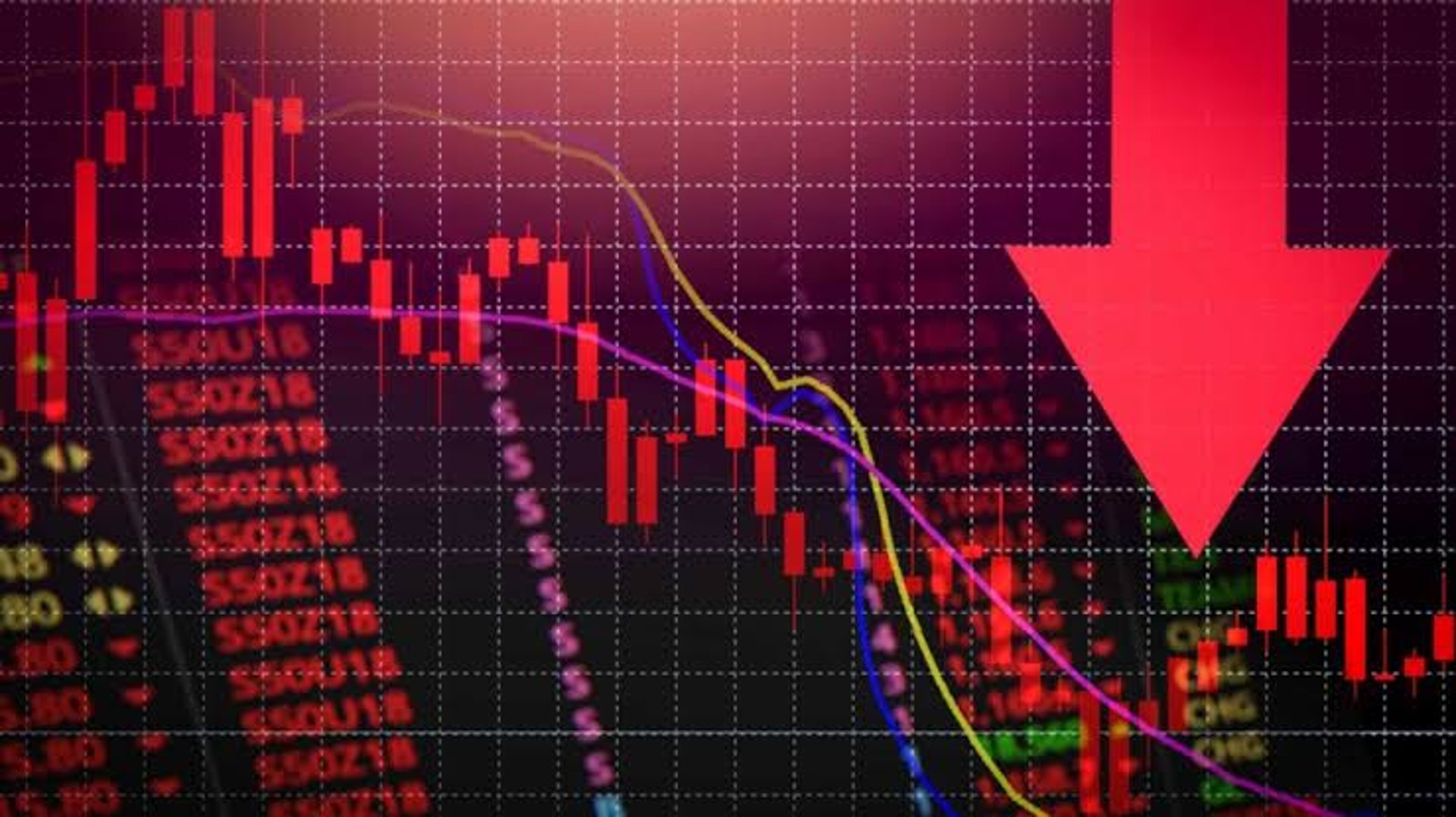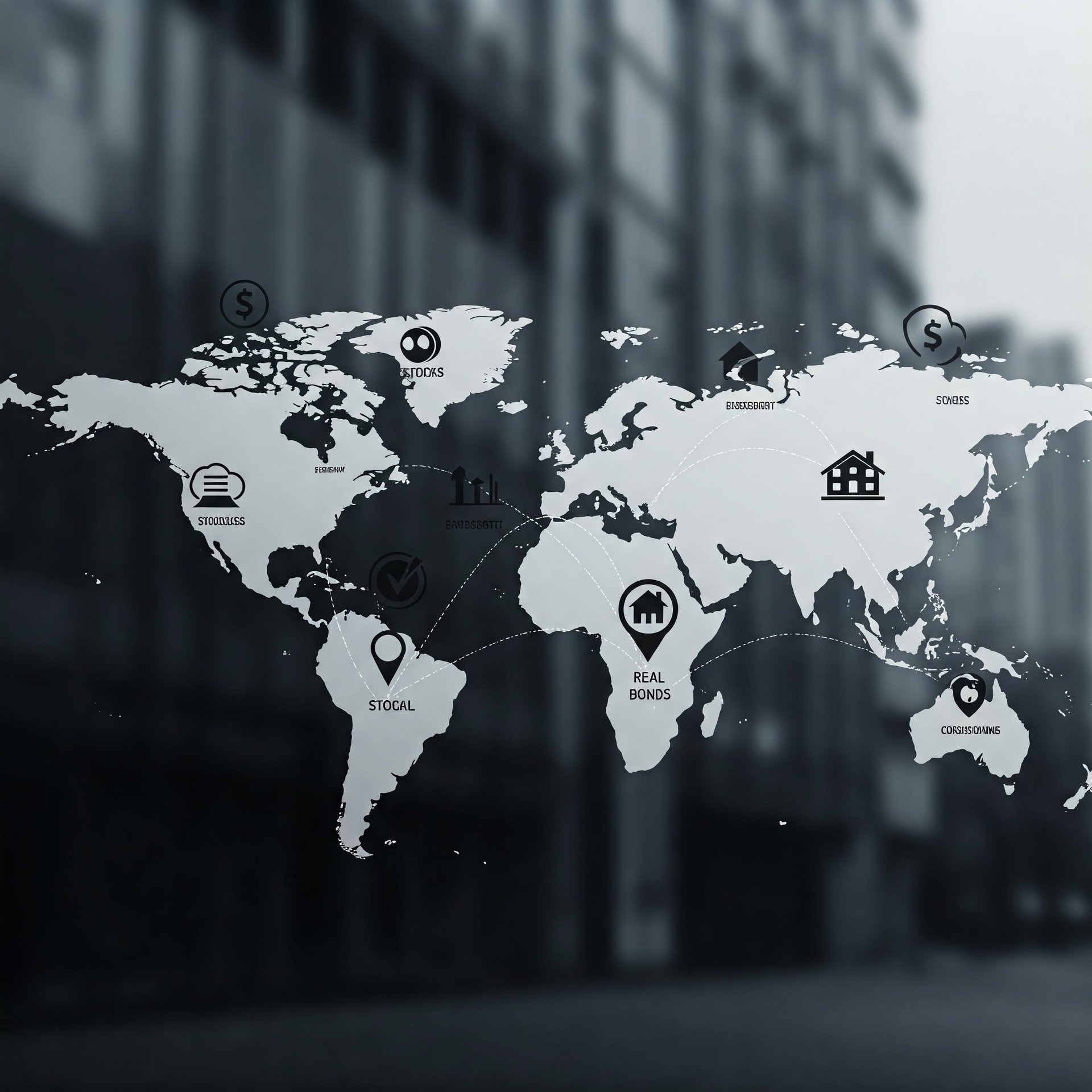
What is a Recession? Complete Guide to Understanding Economic Downturns
2 min read
A recession is one of the greatest economic fears for governments, businesses, and citizens, as it can negatively impact economic activity and social well-being.
When it occurs, it brings a range of challenges, including unemployment, reduced investments, and a decline in consumer spending, directly affecting people's lives.
In this comprehensive guide, we'll cover what a recession is, its causes, economic impacts, and the main strategies used to navigate this challenging period.
📌 What is a Recession?
Simple Definition and Understanding
A recession is a prolonged period of economic decline, typically defined by a significant drop in Gross Domestic Product (GDP) for two consecutive quarters or more.
This phenomenon can impact various sectors of the economy, from employment to consumption, and is characterized by a continuous decline in economic growth rates.
While this is the most common technical definition, a recession is, in practice, an economic slowdown that can lead to several other adverse effects, such as falling consumer confidence and stock market volatility.
🔍 Key Characteristics of an Economic Recession
📉 GDP Decline: The primary indicator of a recession is a contraction in GDP, signaling a slowdown in productive activities and services.
This is a critical measure of a country's economic health.
👥 Rising Unemployment: During a recession, demand for goods and services decreases, leading companies to cut costs and, often, reduce their workforce.
💰 Reduced Consumer and Business Spending: Consumers tend to save more, and businesses delay investment decisions, impacting the broader economy.
🔎 Falling Consumer Confidence: Pessimism sets in, and consumers spend less, creating a vicious cycle that deepens the recession.
📉 Stock Market Decline: Financial markets suffer from uncertainty, leading investors to sell assets, which drives prices down.
🛑 What Causes a Recession?
Common Triggers
Recessions can be triggered by a variety of factors, often occurring simultaneously. The most common causes include:
⚠️ Unexpected Economic Shocks: Pandemics, wars, or natural disasters can disrupt supply chains and impact supply and demand.
💥 Speculative Bubbles: These occur when asset prices, like real estate or stocks, rise unsustainably and then crash.
📉 Tight Monetary Policy: Central banks raising interest rates can slow economic activity by making borrowing more expensive.
😟 Decline in Consumer Confidence: When people feel uncertain about the economic future, they tend to spend less, directly impacting the market.
🏦 Financial Sector Problems: Banking crises or liquidity issues can restrict credit and reduce overall economic activity.
📊 Impacts of a Recession on the Economy and Society
Recessions can have severe economic and social consequences, including:
🚫 Mass Unemployment: As demand declines, many businesses close or downsize, leading to widespread job losses.
💸 Reduced Household Income: Fewer jobs and lower wages reduce household incomes, increasing financial insecurity.
⚠️ Rising Poverty and Inequality: Economic downturns often widen social inequalities, pushing more people into poverty.
💰 Lower Government Revenues: Reduced economic activity leads to lower tax collections, making it harder to fund essential public services.
🏦 Strain on the Financial System: High default rates and asset devaluation can undermine the stability of the banking sector, worsening the crisis.
🚀 How Governments Combat Recessions – Effective Strategies
To counter a recession, governments typically implement a range of fiscal and monetary measures to stimulate economic recovery:
💸 Fiscal Stimulus: Increasing public spending and cutting taxes to boost consumer spending and business investment.
📉 Expansionary Monetary Policy: Cutting interest rates and implementing quantitative easing to increase market liquidity.
📈 Infrastructure Investments: Large-scale infrastructure projects create jobs and stimulate consumption, helping to revive the economy.
💡 Innovation and Technology Support: Promoting tech and innovation sectors to drive long-term economic growth and job creation.
🛡️ Financial Sector Support: Measures to stabilize banks and prevent a deeper financial crisis.
💡 Conclusion – How to Prepare for a Recession
While recessions are sometimes unavoidable, being prepared can make a significant difference.
For investors, business owners, and individuals, understanding the causes, characteristics, and impacts of a recession can help make informed decisions and protect wealth.
👉 Recommended Action: Now that you understand what a recession is and how it can impact your financial life, start planning today!
Invest in financial education, diversify your portfolio, and stay informed about economic trends.

